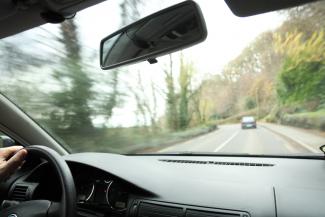
Look at these examples to see how used to, get used to and be used to are used.
I used to want to be a lawyer but then I realised how hard they work!
How's Boston? Are you used to the cold weather yet?
No matter how many times I fly, I'll never get used to take-off and landing!
Try this exercise to test your grammar.
Read the explanation to learn more.
Grammar explanation
Used to + infinitive and be/get used to + -ing look similar but they have very different uses.
used to
We use used to + infinitive to talk about a past situation that is no longer true. It tells us that there was a repeated action or state in the past which has now changed.
She used to be a long-distance runner when she was younger.
I didn't use to sleep very well, but then I started doing yoga and it really helps.
Did you use to come here as a child?
be used to and get used to
Be used to means 'be familiar with' or 'be accustomed to'.
She's used to the city now and doesn't get lost any more.
He wasn't used to walking so much and his legs hurt after the hike.
I'm a teacher so I'm used to speaking in public.
We use get used to to talk about the process of becoming familiar with something.
I'm finding this new job hard but I'm sure I'll get used to it soon.
It took my mother years to get used to living in London after moving from Pakistan.
I'm getting used to the noise now. I found it really stressful when I first moved in.
Be used to and get used to are followed by a noun, pronoun or the -ing form of a verb, and can be used about the past, present or future.
Do this exercise to test your grammar again.




What is the difference between using a verb and the -ing form after "get used to"? How I should know what to use?
Ex.: 1 We didn't use to getting much positive feedback about our old product, but the new formula is really successful. (Why is -ing form used here?)
2 You've stopped hiking? But why? You used to go all the time. (Why is verb used here?)
Hi vikkais,
Actually, sentence 1 is not grammatically correct. It should be: We didn't use to get ... . After "use to" meaning a regular past action, only the verb in the infinitive form should be used.
The -ing form is used after "be/get used to", meaning an action which you are familiar with or accustomed to.
I hope that helps to clarify it.
Jonathan
LearnEnglish team
Hello,
I just read in a book that you do not use used to talk about past situations when the time of the past situation is given.
The example they give is:
2. My father worked for the ABC Company from 1998 to 2007.
I can't find othere sources saying the same.
Is that true?
Hello Bitbyte,
Yes, that's correct. We use 'used' + infinitive to draw attention to a change in a situation. If we're simply talking about something that happened during a period of time in the past, we generally use past simple. The past simple does not exclude a change in the situation -- in fact, it's quite likely there was a change -- but we are not drawing attention to it in the way that 'used' + infinitive does.
Hope this helps.
Best wishes,
Kirk
LearnEnglish team
Could you please explain the correct structures for the following:
1. Modal auxiliary: "ought"
2. Marginal auxiliary: "used"
I have encountered some confusion regarding the following constructions:
- "used + infinitive with to"
- "ought + infinitive with to"
OR
- "used to + infinitive without to"
- "ought to + infinitive without to"
I would greatly appreciate any insights or explanations you can provide to clarify these structures.
Thank you very much for your assistance.
- KesariSir, India
Hello Kesari-ji,
In all the reference works I am familiar with, these are presented as 'ought' + infinitive with 'to' and 'used' + infinitive with 'to'.
It's important to note that the grammars I'm referring to are teaching/learning grammars.
People with specialist interests in grammar may well classify them differently, but I'm afraid I'm not familiar enough with this perspective to say anything useful about it. I expect you could find a discussion of this in the English Language & Usage Stack Exchange.
Hope this helps.
Best wishes,
Kirk
LearnEnglish team
Thank you Kirk Sir
Hello,
Instead of using past perfect, can I use used to in the sentence below?
Our grandparents had left school before they were fourteen.
Hi Khangvo2812,
No, because "used to" shows a repeated past action or a past state, but not a single past action like "left school". You can read more about "used to" and "would" on our Past habits page - I hope you find it useful.
Jonathan
LearnEnglish team
Hello,
Instead of using past perfect, can I use would in the sentence below?
Our grandparents had left school before they were fourteen.